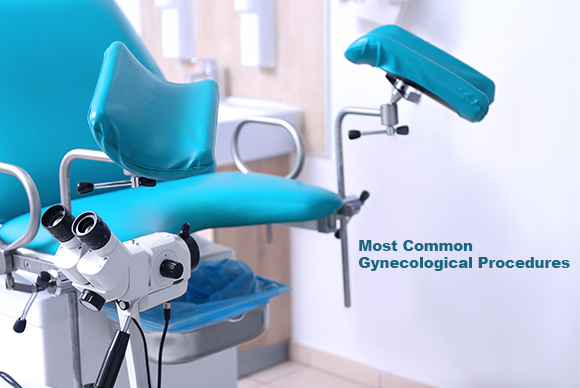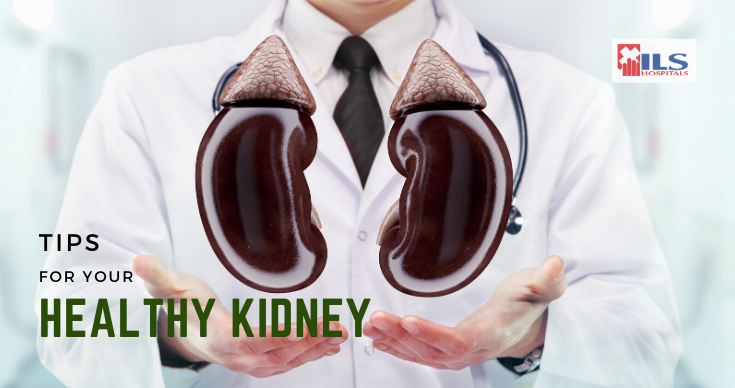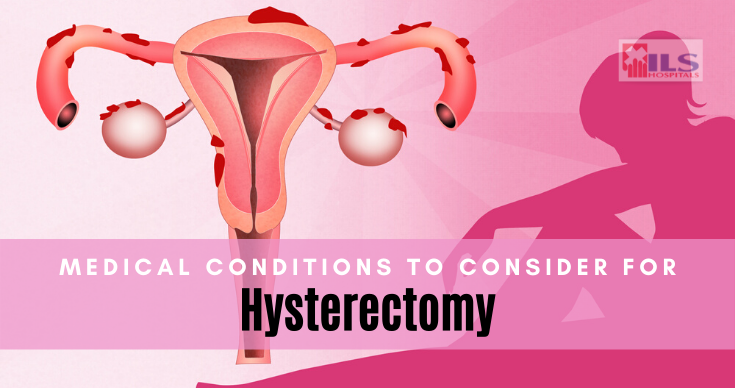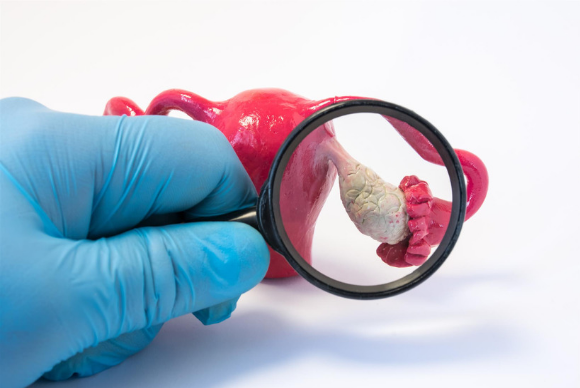4 Most Common Types Of Reconstruction Surgeries
Reconstruction surgery, as the term clearly indicates, is a surgical procedure that addresses and corrects body deformities, that can happen either due to accidental injury, congenital defects or any other illness, including cancer.
Here we present some of the most common reconstruction surgeries.
Hand And Feet Reconstruction Surgery
These surgical procedures are helpful to correct deformities in hands and feet. These are done mostly in order to correct webbed feet, remove extra digits and other congenital defects. Also, these are quite useful to reconstruct the deformities caused by hand and feet cancers. Moreover, any injury or trauma to hand and feet can also be addressed through these surgical procedures.
Breast Reconstruction Surgery
These are a few types of cosmetic surgery, such as breast augmentation surgery, breast reduction surgery, breast lift surgery and all. Though many people believe that breast surgeries are just for enhancing the beauty and more attractive body contour, breast reconstruction surgery is quite useful after a mastectomy (surgical removal of breasts to treat cancer), both physically and psychologically.
Cleft Lip And Palate Repair Surgery
Cleft lip and palate are the two most common congenital defects in babies. These two defects can either occur separately or together. It requires reconstruction surgery to correct these. In fact, in case these repair surgery is availed at a young age, the scars almost get dissolved by the time the child reaches around the age of puberty.
Rhinoplasty
Rhinoplasty is more commonly known as nose-job. It is a cosmetic surgery that fixes the deformity and corrects a misshaped nose. Though it is often considered only to improvise the facial feature of the individual, rhinoplasty does more than that. A misaligned nose can also lead to hindrance in breathing, making rhinoplasty a crucial procedure.
Apart from these reconstruction surgeries, having scar revision, microsurgery and flap procedure is quite common as well. Scar revisions are done in order to enhance the natural appearance of skin, which has been scarred either due to any surgical procedure or accident. The microsurgery and flap procedure, on the other hand, is done in order to replace the skin of the body that has been damaged due to accident, illness or surgery.
Even if, reconstruction surgery might not be able to restore the exact appearance of any body part or a scar, it improvises overall appearance significantly. Thus it helps the individual both physically, aesthetically and psychologically.
Most Common Gynecological Procedures
Gynecological conditions are quite common and thankfully the modern medical science can address most of them effectively. While some can be treated effectively with topical medication, some can be evaluated through non-invasive techniques, but for other condition, it becomes inevitable to use invasive techniques. Most of these procedures (both invasive and non-invasive) are carried out by expert gynecologists and obstetricians in maternity clinic and hospitals.
Here we list out some common gynecological procedures.
Dilation And Curettage
More commonly known as D & C, it is a procedure in which the doctor dilates the cervical cavity in order to remove the lining of the uterus through curettage and extract it out of the cavity through suction. It is used to diagnose any polyps or abnormal growth in the cervical cavity and it is also done to terminate any molar pregnancy and remove the fetal tissues completely after a miscarriage.
Pap Smear
This gynecological procedure should ideally be availed by every woman after the childbearing age and onwards. This procedure including extracting some tissues from the cervix using a speculum. Going for routine Pap smear can help with early detection of any malignancy in the cervix.
Breast Ultrasound
Even though breast cancer is quite common, having lumps in the breast tissue is quite common as well. Whether or not it has malignant growth, can be evaluated by ultrasonography in its original stages. A tumor that keeps growing along with warning signs like nipple discharge and pain, should be diagnosed further.
Hysteroscopy And Hysterectomy
Hysteroscopy is a non-invasive diagnostic procedure to evaluate the presence of any uterine condition. It can also offer useful insights like locating an IUD, abnormal tissue growth, evaluate reasons for repeated miscarriages.
Hysterectomy is the surgical procedure to remove the uterus if it is needed to ensure better health of the patient. Though is sound scary, it is becoming quite common these days and as per gynecologists, they are safe as well if availed form a quality healthcare provider.
Cervical Cryosurgery
Polyps and tumors in the cervix are quite common these days. Cervical cryosurgery is done for removing the tumors that do not resolve on its own. This procedure uses the cryogenic technique to freeze a section of the cervix and remove pre-cancerous cells from the lining of the cervix.
In case you need to undergo any such gynecological procedure or looking for an expert opinion to consider the same, get in touch with our highly experienced gynecologist and obstetrician at ILS Hospitals.
Super Tips To Keep Your Kidney Healthy
Kidneys are a pair of organs that filter the blood and removes any waste and toxins from the body. However, as even ‘one healthy kidney’ can function pretty well, detection of kidney disease becomes quite tricky. Here we bring some super tips, as per nephrologists, to keep your kidney healthy and disease-free.
1. Drink Plenty Of Water
Staying hydrated is always beneficial for everyone. This is particularity true to keep the kidneys healthy and active. So, try to include at least 1.5 to 2 liters of water each day. It helps the urinary system to remove toxins from the body as well reduce the chances of developing kidney stones and other common complications of kidneys.
2. Keep Diabetes In Leash
Diabetes and kidney complications are associated with one another. Thus, it is crucial to keep your diabetes in leash in order to minimize the risks of kidney illnesses in the future.
3. Keep Body Weight In Check
Being overweight brings many complications along with it. Kidney complication is simply one of them. So, staying in shape is a wise way to keep kidney complications at bay. Maintain a healthy body weight by doing physical exercise regularly.
4. Eat Healthy and Wisely
Eating a healthy diet is highly helpful for a healthy kidney. Reduce your salt intake and highly processed food. Instead, include fresh fruits and vegetables. Moreover, in case you are dealing with any kind of discomfort regarding kidney stone or gallstones, it is best to avoid the seeds of the veggies and fruits as much as possible.
5. Monitor Your Blood Pressure Profile
The normal blood pressure ranges from 120 to 80 mmHg. A persistently high blood pressure brings many challenges to kidney’s overall health and functionality. Keeping a tab on your blood pressure level is crucial from time to time.
6. Quit Smoking
Smoking does no good for overall health. Smoking hampers the blood flow to the kidney. Needless to say, when the kidney does not get an adequate blood supply, it affects their ability to function properly. Stop smoking reduces the chances of kidney cancer by about 50 percent.
You are also requested to avail the renal checkup to ensure complete care of your kidneys. Renal checkup packages are available at ILS Hospitals. You are particularity recommended towards the same, in case you have diabetes, obesity, hypertension, or have an immediate family member who also has any kidney complication.
4 Types Of Hearing Loss In Brief
‘We have 2 ears and 1 mouth, that is why we should hear twice as much as we speak’.
It is often said by elders to the youngsters demonstrating the value of listening before acting regarding anything. Indeed it is crucial to have a sound hearing to understand everything around us. It is often mistakenly assumed that hearing loss occurs only for much older people or those who suffer any kind of injury directly over their ears or those who love to listen to loud music over earphone for long hours. However, there are several types of hearing loss. Let’s study them in brief.
1. Conductive Hearing Loss
This type of hearing loss arises due to some damage or blockage in the outer or middle ear. In this case, the sound signal does not pass from the ear canal to the eardrum or from eardrum to the inner ear. It can either be due to clogged earwax, built up fluid of ear glue, persistent infection, abnormal ear bone growth, a perforated eardrum or severe allergies.
It is most common among young children and can be easily treated with over the counter drugs, ear drops or simple ear cleaning procedures.
2. Sensorineural Hearing Loss
This type of hearing loss arises due to the malfunction or damage in the cells of cochlear. It requires immediate and extensive treatment as an unresolved condition can lead to permanent hearing loss. Often it requires assisting implants to control the situation.
3. Mixed Hearing Loss
This type of hearing loss is triggered by the presence of the previous two causes together. Out of these, often the sensorineural hearing loss is permanent and the conductive hearing loss is either temporary or permanent.
4. Auditory Neuropathy Hearing Loss
This type of hearing loss arises from a damaged or malfunctioning auditory nerve transmission between the cochlear and the brain. It triggers due to the cut off the oxygen supply, or some other neurological issue. The degree of hearing loss can fluctuate anywhere between normal to a profound and distinguishing speech from background noise is particularly challenging for such people.
Usually, the mild or temporary hearing loss can be effectively corrected with mild medication. However, several hearing implants and bone anchored hearing aids are also used on patients with high severity or total hearing loss. At ILS Hospitals, our ENT specialists offer advanced forms of audial assisted technique including cochlear implants and other forms of extensive treatment.
Hormonal Issues Faced By Women After Menopause
In this forever changing the world, ‘change’ is the only constant. It is particularly effective when aging is considered. Even though many illnesses keep surfacing through any age, some conditions strike due to aging. Menopause is one such condition that can cause many problems for women going through this stage. Menopause is the transition that marks the end of the reproductive age of a woman.
Today, we will talk about the hormonal issues faced by women after menopause and what needs to be done to address them, as per gynecologists.
There are two particular female hormones, namely estrogen and progesterone in the body. The overall balance and level of these hormones regulated and influence the menstrual cycle and fertility cycle. Their level decreases significantly during the menopause and as a result, it affects the overall health severely. For many women, these effects stay only for a short period of time and for many it stays effective for many years to come.
Symptoms Of Post-Menopausal Condition
Some of the most experienced symptoms of menopause are as follows-
- Irregular Periods Or Spotting
- Mood Swings Without Any Particular Reason
- Hot Flash Or Night Sweats
- Insomnia
- Tenderness And Lethargy
- Brain Fog And Feeling Out Of Focus
- Lack Of Interest In Intimacy
- Experiencing Pain Or Dryness In Intimate Regions
Many women become more susceptible to other conditions such as weight gain, osteoporosis, cardiac ailments, etc. However, the most severe effects often constrain in the mind and require long term medical care.
What Is To Be Done To Address It?
As per many studies, the emotional turmoil is more prevalent among women in western countries, as menopause is considered as a sign of aging. Thankfully, in southern Asian countries, like in India, not many women severely suffer (emotionally) due to menopause, as socially and physiologically, aging often is considered as a mark of wisdom. Though many women find this transition quite easy to deal with, gynecologists acknowledge this as a medical condition and advise to seek treatment in case one is struggling with any discomfort.
Our expert Gynecologist offers effective treatment to the women dealing with the postmenopausal syndrome. Often medication is adequate to deal with the physical symptoms, however, for the mental and behavioral ones, they can also recommend therapy. Moreover, as mentioned earlier that menopause brings many secondary conditions, as a likely scenario, so it is crucial for post-menopausal women to keep their overall health in check as well.
Why Women Should Undergo Regular Health Checkup
“It is hard to be a woman. You must think like a man, act like a lady, look like a young girl and work like a horse.”
Being a woman is indeed quite challenging. Amidst the daily hard life, most women tend to ignore their own health. However, this is a poorly thought and executed habit that often ends up badly. Our expert gynecologists and obstetricians always remind people to prioritize their own health first, before prioritizing their family or their career.
Some Illnesses Affects Women Exclusively
Due to several anatomical and biological factors, some illness affects only women, such as gynecological cancers, postpartum depression and some complications due to hormonal imbalance etc. Moreover, many illnesses are more prevalent among women, such as heart diseases, breast cancer, osteoporosis etc. In either way, it calls out for women to take extra care of themselves.
Enduring Symptoms Does ‘No Good’
Many women, particularly living in rural and semi-urban places often encounter some medical discomfort (often related to gynecological health), but sadly they keep enduring it, until the time, it becomes unbearable. The reasons are mostly due to some taboo or financial constraint. Our expert gynecologists and obstetrician encounter such cases regularly and they strictly advise against it. Taboo should have no place to interfere with one’s health and life also treating most conditions in its early stages are often quite affordable (as compared to later stages, which requires extensive treatment and surgery).
Always Remember – Timely Treatment Makes Huge Difference
No matter how complex any condition is, it is often possible to resolve it better, if they are treated on time. During the early stages, most medical conditions can be addressed effectively with mild treatment approaches. Things start to complicate when the condition left undiagnosed (and thereby untreated) for a prolonged period of time. Needless to say, the best way to ensure timely treatment is periodic screening.
At ILS Hospitals we thrive to offer every woman, a complete health care solution. Keeping this in mind, we have designed the Well Women Check Up package that offers the following screenings:
- Complete Haemogram with ESR
- Fasting Blood Sugar
- PAP smear
- Thyroid Profile
- Urine R/E
- USG Breast Screening for female below 40 yrs
- Chest X-Ray PA View
- USG Whole Abdomen screening
- ECG
We understand that it is often difficult for many individuals to draw meaningful conclusions from the reports. Thus, we offer a Gynecologist Consultation with this package. Ensure a healthy life ahead by availing this health package.
Visit us today to book your package.
All About Ovarian Cysts You Need To Know
There are several gynecological complications that affect the health of women. It is crucial to get in touch with an expert gynecologist in case any symptom of discomfort persists. Let’s have a brief introduction to one such common gynecological condition, the ovarian cysts.
Ovarian Cysts – What Are They
Ovaries are a pair of organs in the female reproductive system. They are located on each side of the uterus, in the lower abdomen. Ovarian cysts are solid or fluid-filled cavity sacs that can develop into either one or both ovaries.
Symptoms Of Ovarian Cysts
The most common symptoms of cysts are as follows-
- Pelvic Pain During Menstrual Cycle
- Abdominal Swelling
- Pain While Passing Urine Or Bowel
- Tenderness In Breasts
- Nausea And Vomiting
- Pain In Lower Back Or Legs
- Dizziness
- Fever
- Breathlessness
However, in many cases, the cysts project no bothersome symptoms and thus remain unnoticed.
Complication Of Ovarian Cysts
Majority of the cysts get resolved on its own and often requires no treatment. However, there may be some compilations associated in some cases. Some of the same are as follows-
- Ovarian torsion is a condition when a large cyst makes the ovary dislocates from its original place, causing a blood supply cut off.
- Ovarian rupture is pretty much self-explanatory, in which the cyst burst and spills the infectious content
- Having cancerous cystic ovarian mass in the cysts indicates malignancy within the cyst.
These complications require immediate medical attention as ignorance can lead to severe consequences later on.
Thereby it is crucial to know the symptoms of the same very carefully, some of which are as follows
- Unexplained Weight Loss
- Loss Of Appetite
- Random Changes On Menstrual Cycle
- Persistent Pelvic Pain
- Abdominal Discomfort Or Fullness
In case multiple symptoms are simultaneously arising and causing much pain and discomfort, it might be a silent indication of an underlying cyst complication. It requires seeking immediate medical attention.
Diagnosis Of Ovarian Cysts
Ovarian cysts can be diagnosed through the following screenings-
- Routine or recommended pelvic examination
- Ultrasonography
- MRI
- CT scan
It is important to avail these diagnostic screening timely to ensure a timely treatment in turn. Even though the cysts do not pose any severe threats, it is always wise to have an accurate diagnostic to re-ensure the same.
Treatment Of Ovarian Cysts
The treatment approach depends largely on the size and severity of the cysts. Some cysts resolve on its own, while some other requires medical intervention. It includes prescribing oral medication, birth control pills and surgical means like laparotomy.
Avail quality treatment and diagnosis of ovarian cysts at ILS Hospitals.
A Brief Introduction To MIGS (Minimally Invasive Gynecological Surgery)
Today, we live in the advanced medical era when we have numerous approaches to gynecological treatment. We have powerful drugs and injections that can offer excellent treatment for many medical conditions, however, for some illness and condition, having the need for surgery is irreplaceable. Even though traditional open surgery has an immense contribution towards overall healthcare, it does have several complications associated with it as well. Thankfully, laparoscopic surgery has emerged to offer the best results in surgical till date. So, let’s have a brief introduction to Minimally Invasive Gynecological Surgery (MIGS).
As the term clearly indicates, MIGS is a gynecological procedure carried out through a minimal incision, unlike the open surgical technique where the procedures are executed by making a large incision near the lower abdomen.
Procedure of MIGS
The MIGS initiates by making a few minute incisions, (as small as 1/8th of an inch) near the belly button. Through these orifices, the doctor inserts some carbon dioxide gas to create a working space for the operation.
A thin instrument called the laparoscope is inserted inside the cavity along with a camera, cold light source, and other necessary equipment. The camera capture the real-time visuals of the cavity. Along with the movement of the laparoscope, the surgeon carries out the procedure effectively and then the instruments are removed after completion.
Advantages of MIGS Over Open Surgery
The benefits of laparoscopic gynecological surgery are the same as that of any laparoscopic surgery. These are as follows-
- Better Aesthetics Due To Much Lesser Scarring
- Lesser Risk Of Surgical Complications Such As Bleeding, Clotting, Infection
- Lower Chances Of Need For Blood Transfusion
- Much Shorter Hospitals Stay
- Quicker Resume Of Daily Life Activities
These benefits make it a more preferred surgery technique and needless to say, it is substituting the traditional open gynecological surgery significantly.
Scope of MIGS
Some of the most common minimally invasive gynecological procedures that are carried out are as follows-
- Laparoscopic Hysterectomy And Hysteroscopy
- Laparoscopic Myomectomy
- Microlaparoscopic Pain Mapping
- Laparoscopic Cerclage Placement
- Removal Of Ovarian Cysts Or Ovaries
- Removal Of Fallopian Tube Devices
Apart from performing surgeries, the minimally invasive technique can also be used to carry out other medical procedures such as diagnostic investigation and gynecological biopsy etc. or to evaluate the extent of any illness or effectiveness of any treatment.
At ILS Hospitals, we offer extensive treatment for any gynecological and obstetrics condition. Our expert gynecologists and obstetricians offer the best treatment along with the advanced gynecological procedures.
Check Out The Medical Condition When Hysterectomy Is Required
The human body, its organs, and the organ system is a complex creation of nature. Each organ has its own set of function and significance. However, due to many complications, it might become important to surgically remove either a part or the entire organ. The uterus is the internal organ that plays a crucial role in pregnancy and menstrual cycle of women. Surgical removal of the uterus is called hysterectomy. Expert gynecologist and obstetrician recommend a hysterectomy for various reasons. Let’s understand what conditions calls out for the need of a hysterectomy.
1. Heavy Menstrual Bleeding
Some women experience severe bleeding during the monthly cycles up to an extent that it starts affecting their daily life. In such cases, hysterectomy offers a permanent solution as post surgery, the menstrual cycle ceases to continue. However, often it is availed only by the women who no longer wish to have children.
2. Uterine Or Cervix Cancer
Any cancer is a deadly medical condition that requires effective treatment on time. For any cancer, surgical removal of the site of malignancy is the best treatment and the same holds true for the gynecological cancers as well.
3. Endometriosis
The uterus lining tissues sometime might grow outside the uterus and spread into nearby organs such as a fallopian tube or other pelvic or abdominal organs. A total hysterectomy is considered when other medical approaches fail to get any effective results.
4. Fibroids
Uterine tumors, even if benign in nature, cause many complications. Pain, bleeding, and anemia is some of them. They can be treated by a non-surgical approach in case they are quite small in size. However, it might require a hysterectomy to address larger fibroids.
5. Pelvic Inflammatory Disease
It is a bacterial infection affecting the female reproductive system which can be cured easily with over-the-counter drugs if detected at its earliest stages. However, failing to do so, can have drastic consequences as it spreads to the uterus and fallopian tubes and causes a long term, severe pain. Hysterectomy remains a feasible and permanent solution for the same.
A partial hysterectomy is a procedure in which only the uterus is removed while the cervix is left intact. In a total hysterectomy, the cervix is also removed (many a time, either or both ovaries and fallopian tubes are also removed) surgically. At ILS Hospitals, we offer laparoscopic hysterectomy for patients dealing with such severe medical conditions.
5 Facts About PCOS Every Women Should Be Aware Of
Polycystic Ovary Syndrome (PCOS) is a condition in which a woman’s body starts to secrete male-sex hormones in a much higher level than ideally should be. As a result, it starts interrupting menstrual cycles and makes the chances of natural conception quite challenging. Here we present some useful facts as per the gynecologists that every woman should be aware of. So let’s begin.
Fact 1 – PCOS Will Leave You More Tired Than You Can Imagine
PCOS not only stresses gynecological health but overall health as well. It makes them feel drenched of energy and experience persistent fatigue. For many women, this severe lethargy lasts particularly during the menstruation cycle, while for others it is pretty much the same, in general.
Fact 2 – PCOS Is Quite Common
In case someone is dealing with PCOS and have to take the day off, while their peers are enjoying everyday life, it is impossible ‘not be feel burdened’ by this unwanted condition. But it the reality, PCOS is a very common condition among women of childbearing age, as per gynecologists. In fact, many women live with PCOS that often stays undiagnosed as they lead a normal life.
Fact 3 – PCOS Cannot Be Cured. But It Can Be Treated
As per gynecologists, medical science is yet to find a complete cure for PCOS. However, good hospitals offer quality treatment for it. This includes managing symptoms by following a balanced diet, taking prescribed supplements and leading a healthy life overall.
Fact 4 – PCOS Needs Prolonged Treatment
As already mentioned, PCOS cannot be cured. Thus, it is crucial to avail its treatment for a prolonged period of time. As PCOS is considered as a condition affecting the women of childbearing age, so they let their guard down when they pass this stage. However, it is highly recommended to keep treating the symptoms even when they hit menopause or are currently pregnant.
Fact 5 – Natural Conception Is Possible Even With PCOS
Though it is common for women with PCOS to struggle to have a baby without any medical aid but it is NOT impossible. Many women successfully conceive even with PCOS. Besides, with advanced artificial reproductive techniques, the chances of having a successful conception are quite high.
At ILS Hospitals, our expert gynecologists offer the best treatment for women dealing with PCOS and other gynecological conditions effectively.




















